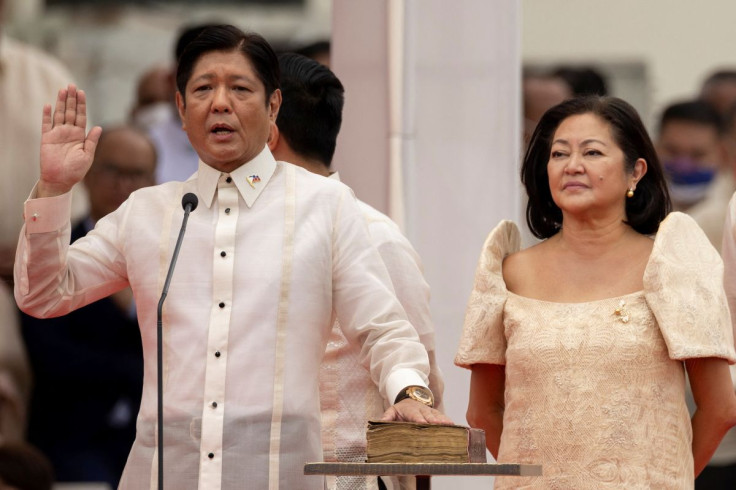South China Sea: Marcos Is Beginning To Sound Like Duterte
Regarding the South China Sea policy, the Philippines' new President Ferdinand Marcos Jr. is beginning to sound like former President Rodrigo Duterte, flip-flopping between a hard and a soft chance towards China.
Back in late May, he took a hard stance against China. He pledged to follow through with his election campaign to uphold the 2016 ruling of an international tribunal that China has no historic title over the waters of the South China Sea. That was a significant victory for the Philippines, which had filed the arbitration case, and its close ally, the US, which wants the South China Sea to be an open sea. But President Duterte failed to uphold the ruling, flip-flopping between a hard and a soft position, winning Beijing's praise of a Global Times editorial, which characterized him as being "peaceful," "cooperative," and "restrained" in the South China Sea disputes; and serving as "model" for Vietnam, Malaysia, and Indonesia.
This week, President Marcos switched to a soft stance. Now, he wants to resolve the disputes with Beijing and is open to working with China's military.
Marcos' flip-flop on the Philippines follows China's senior diplomat Wang Yi's visit to Manila, the first foreign minister to visit the country and the second senior Chinese official to visit the country since the new Philippine presidential inauguration.
"Chinese analysts said it shows China attaches great importance to China-Philippine relations in the era of Ferdinand "Bongbong" Romualdez Marcos Jr. And the visit will pave the way for a future meeting between the countries' top leaders," stated a Global Times editorial, praising the change in Marcos' stance on the South China Sea disputes.
What has changed in roughly one month that elapsed between then and now? It's hard to figure out, as international relations are intertwined with economic relations that complicate policy choices.
Still, one possible answer is that Marcos is facing a similar situation to that Duterte faced during his presidency, an underfunded government. And a dire need to come up with the money needed to fund the country's infrastructure projects that cost too much and take too long to finish. And like Duterte, he may expect Beijing to come up with the funds to solve the country's funding needs.
The trouble is that most of the funds Beijing promised to Duterte never arrived in Manila Instead, the country was flooded by Chinese immigrants, after the Duterte Administration relaxed immigration rules between the two countries. According to a story published in South China Morning Post, Duterte's administration lost count of how many Chinese workers are legally or illegally in the country. And that's at a time 2.2 million Filipinos sought jobs overseas.
That's too high a price for a government to pay while compromising the country's sovereign rights.

© Copyright IBTimes 2024. All rights reserved.






















